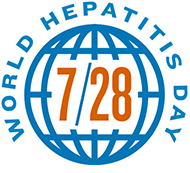Hepatitis C Cure Protects Patients – And Budgets
July 25, 2019
Access to hepatitis C cures isn’t just saving lives. It’s saving money for cash-strapped Medicaid systems.

First introduced in 2011, direct-acting antivirals revolutionized hepatitis C treatment. They are tolerated better than previous options, and the course of treatment is shorter. But their greatest benefit is that direct-acting antivirals actually cure the patient, as opposed to just treating their hepatitis C symptoms. Once criticized for being overpriced, direct-acting antivirals have had their prices driven down by market competition.
And now use of the curative medicine could save states $12 million by 2020, less the treatment’s cost.
A retrospective analysis of Medicaid claims found that a complete course of direct-acting antivirals – at 2018 prices – pays for itself after about 16 months. In 2012, state Medicaid programs spent an average of $10,561 to $46,263 per patient, including hospitalizations, doctor’s and clinic visits, lab tests, and prescription drug costs. All are avoidable expenses for cured patients.
The study’s findings could serve as a wake-up call for policymakers, who have historically thought they needed to choose between minding the budget and treating the state’s hepatitis C patients. For years, dozens of states have used restrictive policies to keep patients from accessing the curative treatment. Illinois Medicaid, for example, was notorious for its 17-step prior authorization process.
Limiting treatment access likely contributed to the United States’ abysmal rating from the International Liver Congress. The organization projected it would be at least 2050 before the United States meets the World Health Organization’s hepatitis C elimination targets.
Achieving elimination would require expanding access to all affected populations, including prison populations, which also have a high prevalence of hepatitis C. It would also require the United States to address gaps in testing that keep many people from even knowing they’re infected with hepatitis C.
On the eve of World Hepatitis Day, July 28, policymakers would be wise to reconsider the value of curative treatment – for both the lives of infected Americans and the budgets of public health systems across the country. Whether incarcerated, covered by Medicaid or privately insured, getting testing and initiating treatment early has important benefits.
Categorized in: Blog

